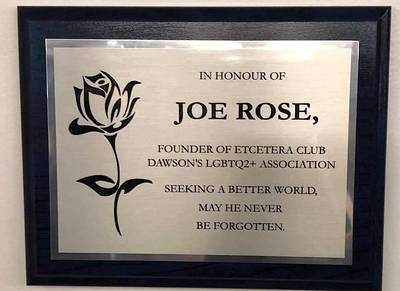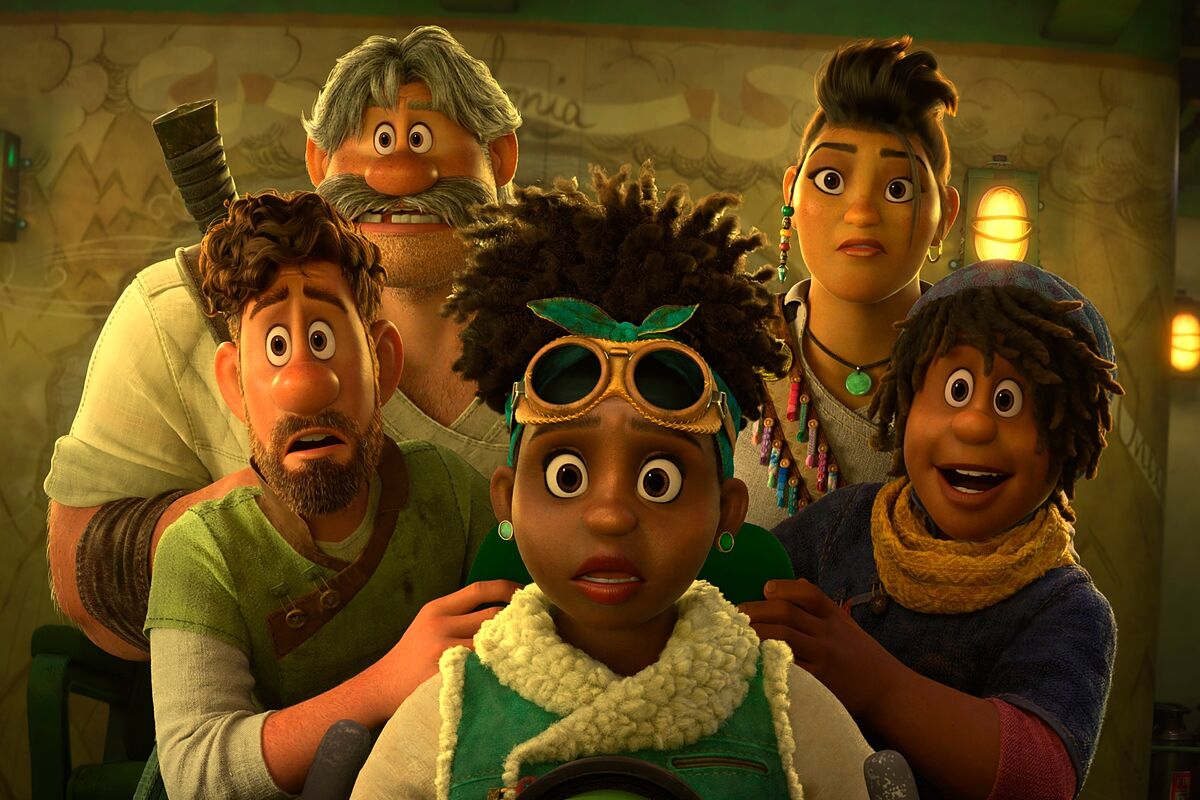Editor’s note: This article uses LGBT (lesbian, gay, bisexual and transgender) as it was the accepted acroynm during the 1980’s – 1990’s. Accepted acronmys in Canada today are 2SLGBTQ+, 2SLGBTQI+, 2SLGBTQIA+ and 2SLGBTQIAA+ (Two-Spirit, lesbian, gay, bisexual, transgender, queer, intersex, asexual, allies and others)
SYDNEY MINES — Geoffry Rose’s voice trails off when he says how old his brother was when he was murdered in 1989.
“Twenty-three,” Rose, who was 20 at the time, said quietly — a solemn sadness in his voice.
Joe Rose Jr. was born in North Sydney, where his father Joe Rose Sr. grew up. When he was a toddler the family moved to Montreal, Quebec where Joe grew into a young man remembered for his courage, his LGBT activism and his pink hair.

“He just felt that people shouldn’t have to hide for being themselves,” said Geoffry, who lives in Sydney Mines.
“You know if you’re happy holding hands with another guy, why should you hide it? If two human beings fall in love, well, love is love. There’s no reason to hate somebody because of their sexual preference or what they do behind closed doors.”
But Joe, who lived his life openly from the age of 16, was a victim of a hate crime that cut his advocacy days short but not the impact his life and death would have on the LGBT activist movement in Quebec.
Safer spaces
Joe was openly gay all through high school in the late, which he graduated from at age 16 in 1981.
At the time being openly a part of the LGBT community wasn’t as common as it is 30 years later. Even in Montreal where there was more acceptance homophobia ran rampant and there were few safe spaces for gender and sexually diverse people on many college and university campuses.
Joe was supported by almost all of his family members, accepted immediately for who he was, and he wanted that for others.
After high school while attending Dawson College, Joe started a safe space for LGBT students on campus.
Originally it was called GLAD — Gays and Lesbians and Dawson — then it was changed to the Etcetera Club, which is still there today with a plaque in memory of Joe hanging on a wall.
A school paper reporter, Joe studied journalism at Concordia University where he also wrote for the student paper.
One opinion piece Joe wrote was about being openly gay, a courageous way to advocate the way he thought would instigate the most change.
And he continued to live openly after being diagnosed with AIDS.
March 19, 1989
It was the early morning hours when Joe Rose Jr. and his friend Sylvain Dutil were verbally and physically attacked by four youths while on a bus.
Joe had deejayed at K.O.K nightclub that night. Geoffry wasn’t there that night because his band was playing at a different bar.
Joe was heading home to the AIDS hospice he lived in, travelling from Atwater to Frontenac station.
During the ride four males, three minors ages 15, 15 and 14 and 19-year-old Patrick Moise, started taunting the pair, yelling gay slurs.
As the bus approached the station, Joe was kicked, struck in the head and stabbed to death.
According to coverage done in the Montreal Gazette, Dutil had minor injuries and was found trying to resuscitate Joe, covered in blood, when emergency services arrived.
This is one of the images that still haunts Geoffry today.
“When the 30th anniversary happened (in 2019) I had a really hard time. Everybody kept sending me news clipping from when it happened, me talking with reporters and when they saw a video of his body, all the things they stabbed him with,” he said.
“I live right on Main Street and I’ll sit here and see a bus go by and start crying. Or I’ll cringe thinking about that yellow line with my brother lying on it.”
Rose’s impact
After Joe’s murder, there was an uprising among LGBT activists who began to turn their energy to violence against the community.

In the months after his death, MacGill University’s CKUT-FM radio aired a 15 hour radio special about homophobia and AIDS activist group Act Up held a demonstration inspired by Joe at the Fifth International AIDS Conference.
After this, Act Up opened a Montreal office and they held a “die-in” protest on the one-year anniversary of Joe’s death.
Not the only murder on Montreal’s transit system around that time, Joe’s death forced STCUM to review their emergency systems.
His family also won a civil suit against the bus service because the driver didn’t employ the emergency system promptly and were awarded $25,000.
The lenient penalties for the three minors who killed Joe led the Canadian government to change the criminal code as well.
However, when it comes to legacy, Geoffry said Joe’s is living life the way you want to.
“Be yourself. there’s no other way to be. You should be able to be yourself no matter where you are,” he said.
Joe Rose Jr.
LGTB-AIDS/HIV activist
Date of birth: Dec. 27, 2965
Date of death: March 19, 1989
Born in: North Sydney
Grew up in: Montreal
Studied: Journalism
University: Concordia
Believed: Being open would lead to acceptance
Pride Cape Breton
Candlelight Vigil
What: Remembering those who’ve died
When: Aug. 11
Where: Wentworth Park Bandshell
Time: 8 p.m.
Nicole Sullivan is a diversity and education reporter for the Cape Breton Post.








